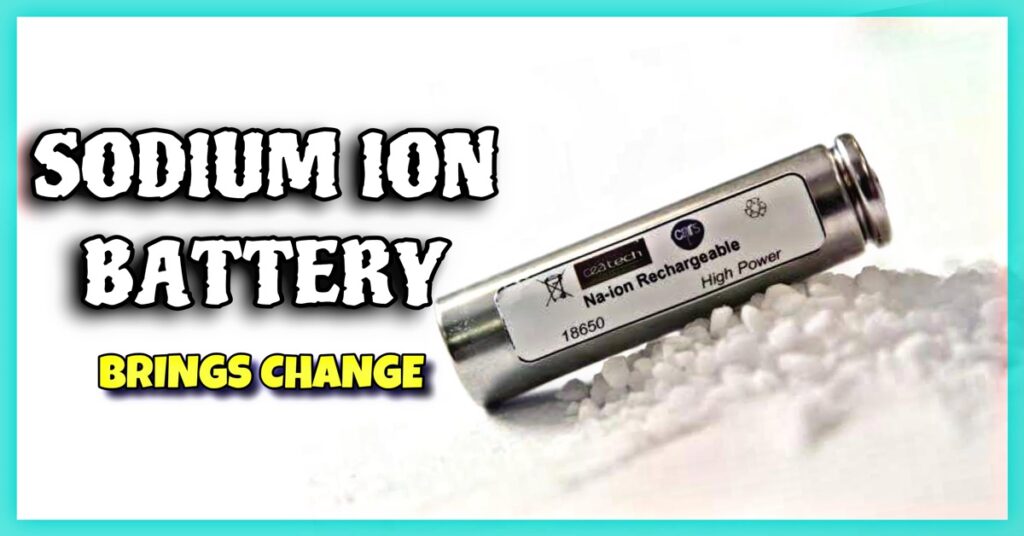
In pursuing a sustainable future, Sodium Ion Battery have emerged as a game-changing technology in energy storage. These innovative solutions are contributing to a cleaner, eco-friendlier planet. This article delves into Sodium Ion Batteries, examining their potential and advantages.
which is better sodium ion battery or lithium ion battery?
Sodium and Lithium-ion batteries have different uses easy availability, and energy density offering several benefits in battery production.
In the future Sodium ion battery affordability and widespread availability make it a promising choice for sustainable energy storage. According to projection BNEF research by 2025 sodium ion battery can store 150 watt-hours in 1kg.
| Sodium ion battery | Lithium ion battery |
| safe | less safe |
| Easily availability makes it cheaper | More safer than a Lithium-ion battery |
| Eco-friendly | Non-Ecofriendly |
| Easily availablebility makes it cheaper | Not easily available |
| Charge density is lower than lithium | Higher than sodium ion battery |
| More thermal stability( does not catch fire easily) | Less thermal stability |
| Lower energy density | Higher energy density |
| more life cycle of battery | Less life cycle |
| high self discharge rate than lithium | high self-discharge rate than lithium |
Benefits of Sodium-Ion Batteries
1. Environmentally Friendly
Sodium-ion batteries stand out for their environmentally responsible nature. Unlike lithium-ion batteries, they don’t rely on scarce and ecologically harmful materials. Sodium, a common element found in salt, is an eco-conscious choice that reduces the environmental impact of battery manufacturing.
2. Economical
A key advantage of Sodium Ion Batteries is their cost-effectiveness. Sodium is notably more cost-efficient and readily available than lithium, resulting in more budget-friendly energy storage solutions.
3. Impressive Energy Density
Sodium-ion batteries offer a high energy density but lower than Lithium. Due to it being able to store high amounts of energy, makes them ideal for a variety of applications, from powering electric vehicles (EVs), and renewable energy storage.
To replace Lithium-ion batteries there should be more research so that its storing of energy will increase.
Why Lithium-ion battery is used in Mobile phones
In the periodic table, sodium is a much larger element than Lithium. Due to its light weight Lithium is used as an anode in Mobile phones, laptops, and portable chargeable devices.
Some other factors are that it is good at rapid charging, stores high energy density, and drains slowly. So most of the best Samsung watches and other electronic devices are easily portable, using Lithium-ion batteries.
From the above differences, you can see the difference between sodium-ion and lithium-ion batteries and easily judge which is better.
Applications of Sodium-Ion Batteries
Sodium Ion Batteries’ versatility renders them suitable for numerous applications:
1. Renewable Energy Storage
SIBs are excellent for storing energy from renewable sources, such as solar panels and wind turbines. Their high energy density ensures efficient energy storage, making it accessible even when the sun isn’t shining or the wind isn’t blowing.
2. Electric Vehicles (EVs)
The automotive industry is making substantial strides in adopting Sodium Ion Batteries for electric vehicles. With their cost-effectiveness and impressive energy storage capabilities, SIBs are becoming the preferred choice for EV manufacturers.
3. Grid Energy Storage
Sodium Ion Batteries can play a crucial role in stabilizing energy grids. They can store excess energy during periods of low demand and release it during peak hours, ensuring a consistent and reliable power supply.
Top 5 Sodium Ion Battery Companies
These are the top companies in the world of Sodium-ion batteries
- Natron Energy INC – USA
- Faradion Limited – UK
- CATL(Contemporary Amperex Technology CO. Limited) – CHINA
- Altris AB – SWEDEN
- Hina Battery – CHINA
Transitioning to a Sustainable Future
The world stands at a pivotal moment, with the demand for sustainable energy solutions increasing daily. Sodium-ion batteries offer a promising path toward a cleaner, greener, and more sustainable future. With their cost-effectiveness, environmental friendliness, and high energy density, SIBs are poised to revolutionize energy storage and utilization.
Embracing Sodium-Ion Batteries is a significant step towards reducing our carbon footprint and securing a brighter future. Investing in these batteries means investing in a cleaner, more sustainable future for future generations. It’s a choice that benefits us and the planet we cherish as our home.